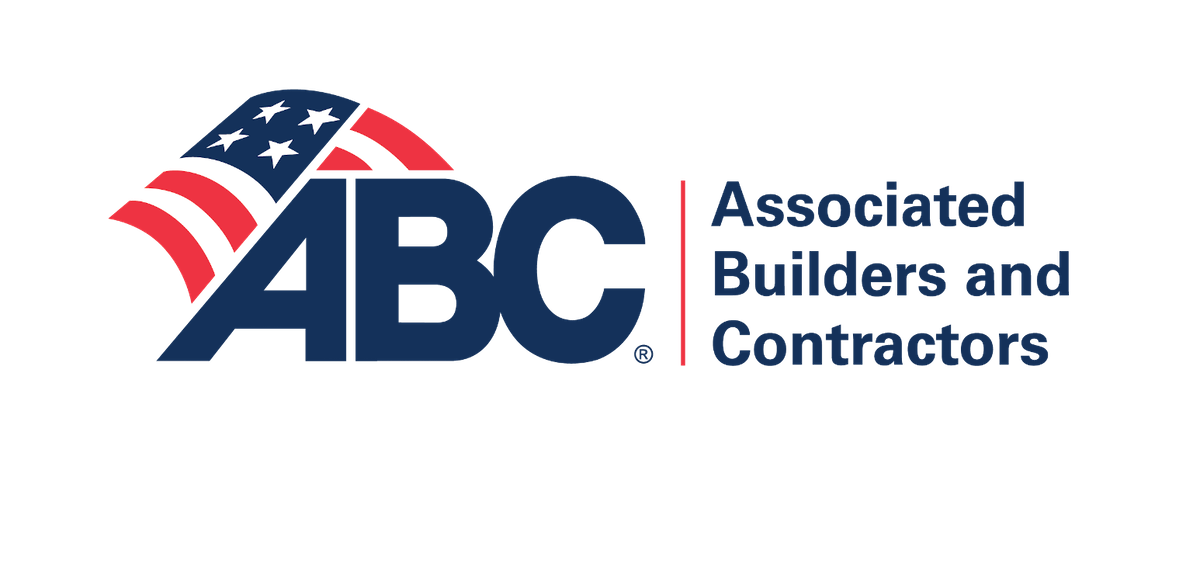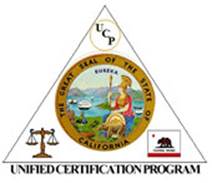Montana Prevailng Wage Information
GENERAL INFORMATION
Montana's prevailing wage law, often referred to as Montana's Little Davis-Bacon Law, applies to public works contracts entered into for construction services (heavy, highway and building) or non-construction services by the state, county, municipality, school district, or political subdivision in which the total cost of the contract is $25,000 or more. It requires that bidders on contracts pay a set rate of compensation, including employee benefits, and that at least 50% of the employees of each contractor working on the jobs be bona fide Montana residents.
The Department of Labor and Industry, through its Labor Standards Bureau, determines prevailing wage rates for the construction and service industries. Established rates can be obtained by clicking on Montana Prevailing Wage Rates. The Labor Standards Bureau also enforces the rates and classifications under heavy, highway and building construction, and services. Specifically excluded from the law are employees engaged in engineering, superintendence, management, office or clerical work or consulting contracts, contracts with commercial suppliers for goods and supplies, or contractors with professionals licensed under state law.
Prevailing wage rate schedules
A prevailing wage rate includes the basic hourly rate and the fringe benefit rates to be paid to a worker employed in a specific trade classification on a public works project.
Prevailing wages are established by the Department of Labor and Industry, Labor Standards Bureau by using the following:
1) wage surveys conducted by the DOLI
2) established and special project rates of the previous year
3) valid CBAs
4) wage rates determined by the federal government under Davis-Bacon Act and the Federal Services Act
All construction and non-construction prevailing wage rates are established yearly.
To obtain a copy of the current prevailing wage rate schedule, please contact the Department of Labor and Industry, Labor Standards Bureau, at (406) 444-5600, or http://erd.dli.mt.gov/labor-standards/state-prevailing-wage-rates
TIMING & INCREASES TO PREAVILING WAGE
Wage rates are surveyed in June and updated in the following January annually. The survey is voluntary, so the value of an increase or decrease depends on the number of responses and the value of those responses. Please see §18-2-417, MCA for more information regarding increases required by prevailing wage law for multi-year contracts (contracts entered into for thirty months, by the terms of the original contract).
OVERTIME
Overtime must be paid for all hours worked in excess of 40 hours during any one week at a rate of no less than one-and-one-half times the basic hourly rate of pay. If in a given week an employee works at varying rates, the employer would need to determine the weighted average regular rate for the week or pay the overtime at the highest rate for the week. Please see § 39-3-405, MCA for general information on Montana overtime law, and ARM, 24.17.326 for information on how overtime is calculated.
WORKING ON WEEKENDS
Montana prevailing wage law does not require payment of different wage rates per trade for working on the weekends.
WORKING ON LEGAL HOLIDAYS
Montana’s prevailing wage law does not recognize any legal holidays. The fringe benefit takes into account any vacation, sick, and holiday days calculated on an hourly basis, and if applicable, any travel, per diem or zone pay depending on the distance of the project from the designated city in the district where the work is performed.
SHIFT DIFFERENTIALS
Montana prevailing wage law does not require payment of different rates depending on the shift worked per trade.
FRINGE BENEFITS
Pursuant to Montana prevailing wage law Section 24.17.321, all contractors, subcontractors and employers that are required to pay employees the prevailing rate of wages must pay no less than the hourly rate of pay and fringe benefits as determined by the commissioner.
Apprentices
Apprentices must be paid the percentage of the basic hourly rate required, based on the total time in the craft, and/or fringe benefits specified in the employers' registered apprenticeship standards. If the apprentice performs labor, which is subject to a higher wage rate either by contract or by law than that specified in the apprenticeship standards, the higher wage rate shall be paid by the contractor, subcontractor or employer. If the standards are silent on the payment of fringes, the apprentice is to receive the full amount of the fringe benefits stipulated on the wage decision.
TRAINING CONTRIBUTIONS
Montana’s Department of Labor & Industry requires employers to include any costs of defraying apprenticeship or other similar programs in the hourly fringe amount (in the surveys). The amount is unique to each employer.
APPRENTICE REQUIREMENTS
For information on apprentice requirements and wage payments made to apprentices, please see the following sites:
Apprentice requirements: ARM, 24.17.171
Wages to be paid to apprentices: § 18-2-416, MCA
TRAVEL AND SUBSISTENCE
Montana prevailing wage law does recognize travel, per diem, subsistence and zone pay for each district. These rates are calculated based on what is negotiated in the collective bargaining agreement for that district for each trade classification. See current rate schedules for specific details.
CONTRACTOR LICENSING
All construction contractors and subcontractors must register with the Department of Labor and Industry if they have employees. Those contractors without employees may register, but are not required to do so. To check if a contractor is registered in Montana, call (406) 444-7734. To see a list of registered Montana construction contractors, click here. For a list of licensed electricians or plumbers, click here. Or, find more detailed information on Montana’s contractor licensing policy.
The Business Services Division handles contractor licensing. In addition, pursuant to § 18-2-413(3), MCA the Montana Department of Labor & Industry obtains a list of employers that have a fire suppression systems entity license.
DUTIES OF MONTANA DOL, CONTRACTING AGENT, AND CONTRACTORS
Duties of Montana Department of Labor and Industry
1) establishing prevailing wage rates for use on public works contracts
2) conducting surveys to determine the prevailing wage rate schedules
3) filing and issuing prevailing wage rates
4) inspecting and auditing payroll records of contractors
5) investigating complaints of nonpayment of prevailing wage rates
Duties of contracting agency
1) requesting the prevailing wage rate schedule from the Department of Labor and Industry
2) providing prevailing wage rate schedules in public works contracts let out for bid
3) provide wage rate adjustments for multi-year contracts in excess of 30 month contract and thereafter for the term of the contract
4) including a provision requesting the contractor to give preference to the employment of bona fide Montana residents.
Duties of contractors/subcontractors
1) posting a prevailing wage rate schedule in a prominent and accessible location on the site of the project or work area
2) classifying workers in accordance with the craft or trade to be performed and paying the established prevailing wage rate
3) providing wage rate adjustments for multi-year contracts in excess of 30 month contract and thereafter for the term of the contract
4) keeping a record of hours and wages paid to the workers
5) providing payroll records for inspection to the Department of Labor and Industry or the contracting agent upon request
6) ensuring that at least 50% of the workers, except where prohibited by federal law, performing labor on the project are Montana residents
PENALTIES
Pursuant to Montana prevailing wage law Section 18-2-432, the penalties for violations of this section are as follows:
Withholding funds
(1) (a) If a person, firm, or corporation fails to comply with the provisions of this part, the state, county, municipality, school district, or officer of a political subdivision that executed the public works contract shall retain $1,000 of the contract price as liquidated damages for the violation of the terms of the public works contract, and the money must be credited to the proper funds of the state, county, municipality, school district, or political subdivision.
Non-compliance because of gross negligence
(1) (b) If a person, firm, or corporation fails to comply with the provisions of this part due to gross negligence, as determined by the commissioner, the commissioner may retain up to an additional $10,000 above the amount provided for in subsection (1)(a) as a penalty for the violation of the terms of the public works contract. The money retained pursuant to this subsection (1)(b) must be credited to the proper funds of the state, county, municipality, school district, or other political subdivision.
Aggravated/willful violations
(2) Whenever a contractor or subcontractor is found by the commissioner to
have aggravatedly or willfully violated the labor standards provisions of this chapter, the contractor or subcontractor or any firm, corporation, partnership, or association in which the contractor or subcontractor has a substantial interest is ineligible, for a period not to exceed 3 years after the date of the final judgment, to receive any public works contracts or subcontracts that are subject to the provisions of this chapter.
(3) Whenever an action has been instituted in a district court in this state
against any person, firm, or corporation for the violation of this part, the court in which the action is pending is authorized to issue an injunction to restrain the person, firm, or corporation from proceeding with a public works contract with the state, county, municipality, school district, or political subdivision, pending the final determination of the instituted action
Filing a wage complaint
The law provides that workers that have not received the prevailing wage rates on public works contract may file a complaint with the Department of Labor and Industry, Wage and Hour Unit.
The Wage and Hour Unit, as enforcers of the prevailing wage law, will conduct an investigation to determine the merits of the complaint and issue a determination of its findings.
If a violation has been determined, the contractor/subcontractor/employer may be subject to penalties.
For more information on filing a wage complaint or to access the wage complaint form, please see “Helpful Links” below.
DEBARMENT
Montana prevailing wage law states:
Whenever a contractor or subcontractor is found by the commissioner to have aggregately or willfully violated the labor standards provisions of this chapter, the contractor or subcontractor or any firm, corporation, partnership, or association in which the contractor or subcontractor has a substantial interest is ineligible, for a period not to exceed 3 years after the date of the final judgment, to receive any public works contracts or subcontracts that are subject to the provisions of this chapter. 18-2-432(2), MCA.
Based on the above statute, the following vendor is debarred to receive any public works contracts or subcontracts that are subject to 18-2-401 et seq., MCA
Current debarment list
Montana’s debarred vendor’s list
Federal list of excluded vendors
HELPFUL LINKS
Montana’s prevailing wage law
Prevailing wage quick reference guide
Montana’s prevailing wage survey FAQ
Building construction occupations
Non-construction services occupation
Montana prevailing wage administrative rules
Prevailing wage FAQ
Filing a human rights complaint
Wage claim form
Instructions on filing a wage claim form
Instructions on filing a workers compensation claim
Prevailing wage rates
Montana prevailing wage rates for building construction 2015
Montana prevailing wage rates for heavy construction 2015
Montana prevailing wage rates for highway construction 2015
Montana prevailing wage rates for non-construction 2015
CONTACT INFORMATION
Montana Department of Labor and Industry
Employment Relations Division
P. O. Box 201503
Helena, MT 59620-1503
Phone 406-444-5600
TDD 406-444-5549
Montana’s prevailing wage survey and rate information: Mike Smith (406) 444-1741








